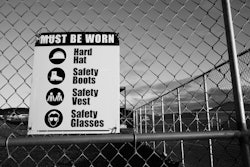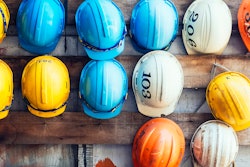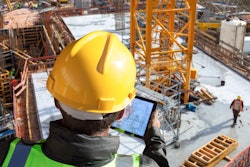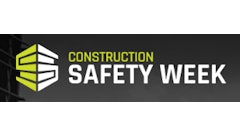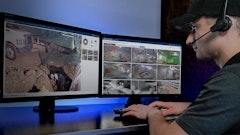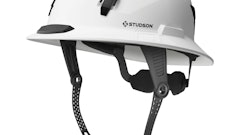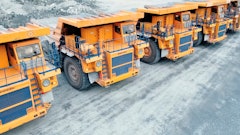
On a jobsite, no one ever intends to make a mistake or cause an accident. But there are ways to prevent and curb these inherent risks associated with working in construction. Fortunately, one tool has become essential to helping companies across the construction industry do just that: mobile workforce management software. Now more than ever, construction leaders are using such technology to create cultures that truly promote proactive safety.
Here are three examples of how mobile workforce management software helps companies build cultures of proactive safety:
Digital Documentation
Many construction companies continue to document safety training and risks on job sites via analog methods such as paper forms or spreadsheets, with workers physically signing off on items like toolbox talks. But there are several recurring issues that arise with these methods.
First, the paper trail becomes difficult to keep track of. Then there are the delays in sharing this documentation between a job site and the back office, which means days and weeks can pass before unsafe situations and conditions are flagged or reported. This leaves workers vulnerable to risks and also causes companies to be exposed to greater liability. On top of delays and increased risks, these methods are wildly unproductive. It takes time to document, time to share documentation, time to review and time to address issues. All of which can lead to more delays and lots of administrative costs lost in the process.
Overall, these antiquated methods are a painful process that leave people unengaged in safety, leading to safety actually becoming an afterthought in a company’s culture. That’s a risk companies can’t afford to take. With the use of a mobile workforce platform, however, construction companies can document training and risks in real time. Companies can implement new procedures immediately across all their job sites and right in the palm of each workers’ hand, eliminating long waiting periods for updated safety information to reach vital workforces.
Such platforms hold everyone accountable, no matter the circumstances. Take COVID-19 safety measures; companies were able to launch health and safety screenings in minutes. Workers were required to complete health questionnaires on their mobile devices before entering job sites. And thanks to mobile workforce platforms, companies were able to identify risks, reduce potential exposures and ensure the safety of their teams.
Instant Communication
Mobile workforce solutions are equipped with instant communication features, connecting workers on the job site to project managers and leaders often located offsite. Why does this matter? It creates an open channel for on-site workers to share their concerns and inform company leadership of issues they are likely unaware of. Mobile workforce platforms have simple chat functions that allow workers to share videos and photos to alert others of safety issues. Let’s say a worker notices an issue with a project, such as faulty wiring or a beehive. They can take photos or a video of the problem and share text explaining the issue. These can be instantly uploaded to a company’s entire leadership team, so action can be taken to address the issue before safety is further compromised.
By encouraging workers to speak up and report the health, safety and project issues they observe every day, construction companies can proactively head off bigger issues down the line. Having an open line of communication between on-site workers and company leadership creates a culture of safety. And it’s not just checking off boxes for OSHA and local health departments. Open communication engages field workers and puts them in control over both their individual safety and that of their entire job site.
Digital Toolbox Talks
Toolbox talks generally cover the gamut of topics, from new processes and procedure changes to tips on executing best safety practices. With mobile workforce technology, businesses can take these from the back of a truck to a mobile phone, placing all the information directly in the hands of field workers. Mobile workforce platforms provide construction companies an effective method to introduce new safety training and reminders to every employee wherever they are and whatever project they are working on.
Companies can even strategically assign relevant digital toolbox talks to specific company workers. So, Team A on Job Site D that’s doing scaffolding work can get project-pertinent safety information while Team B doing high-rise work over on Job Site F receives safety training directly relating to its particular tasks. Think that’s a mouthful to read? Consider managing the logistics of it in person. Digital toolbox talks are also a great way to share company-wide information on health check-ins like sanitizing equipment after a use or ladder, power tool and fire safety, among other job site hazards.
One of the best features of a mobile workforce platform is that they allow company leaders to see who has completed a digital toolbox talk and who has failed to do so. This can flag workers and not allow them to move onto their next project or log their hours until they’ve completed the toolbox talk. This is huge for establishing proactive safety measures within a company, and the result is safety becomes an integral part of a worker’s day. By continually introducing digital toolbox talks, which can be shot on a smartphone, workers receive better training, sidestep avoidable mistakes and prevent accidents, all of which leads to construction companies lowering safety risks and incidents.
Leaning on construction technology like a mobile workforce platform allows construction firms to get in front of potential hazards and safety issues to reduce workplace risks, keep employees safe and deliver projects safely, time and again.
Mike Merrill is co-founder and chief evangelist of WorkMax by AboutTime Technologies and host of The Mobile Workforce Podcast. He has been an entrepreneur and business owner in the construction and technology industry for nearly three decades.





